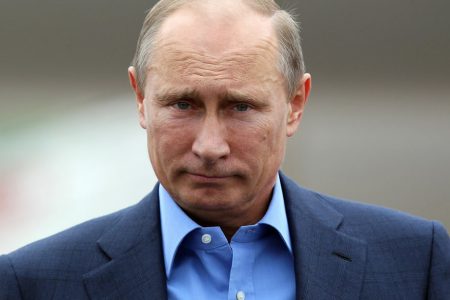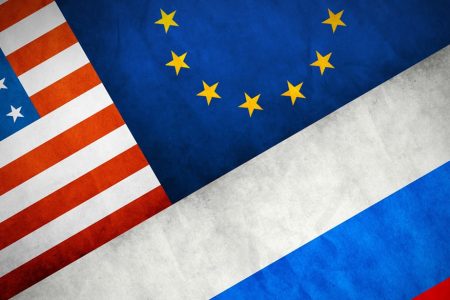On January 4th the Grindeanu government was sworn in and its governing program accepted by the Parliament. The ten pages devoted to foreign affairs talk about the new administration’s objectives and future measures in its efforts to be predictable, active, a good EU and NATO team player, an exporter of peace and security in the region. However, the document feels like wishful thinking that Romania can fix everything and be everywhere and fails to offer a coherent vision and a realistic list of priorities.
From the reading, we learn that the country’s objectives are to strengthen both the EU and NATO, to deepen the Strategic Partnership with the US, to prepare for the 2019 Presidency of the Council of the EU and make a good impression, to help the Republic of Moldova in its European path, to cooperate with basically each country in the world, to promote stability and prosperity in Eastern Europe and the Balkans, to work through international bodies, and to assure rights and diplomatic assistance to Romanians abroad.
When diving into the measures needed to implement these objectives, the document offers a long list of to-do’s that can be classified as “more EU, more NATO, more peace and cooperation in the world, more good things for Romanians abroad, we heart the US”. Let’s explore and explain.
More EU as the government sees Romania’s added value having “a majority of the population strong pro-EU, no extremist or Eurosceptic movements, stability and a growing economy”. Internally, we plan on better coordinating the institutions in charge with formulating policies and to absorb the Cooperation and Verification Mechanism. Romania will support further enlargement, common policies (CAP, Cohesion, Convergence), a good governance of the Euro zone with an eye on the gap between Euro countries and non-Euro ones. We want to join Schengen, we support EU’s foreign initiatives (Eastern Partnership, Global Strategy on Foreign and Security Policy) and we plan to tackle migration at its root cause but also help transit countries. We support the CSDP but only as NATO’s European pillar, which basically calls for more NATO in Romania and more Romania in NATO. In this regard, the new government looks forward to consolidate the air and naval presence and to operationalize the multinational brigade and the Multinational Divisional Headquarters Southeast. We like our Deveselu installation and we would like the anti-missile system to be further developed. Romania will further support NATO’s policies towards and support for Ukraine, Georgia, and the Republic of Moldova and will maintain its commitment to ISAF. Romania will contribute to the Alliance’s preparedness in terms of cyber security, energy security, fighting hybrid threats.
In terms of Romania’s foreign relations and the status of Romanians abroad, Romania aims at being friends with everybody and to make life easier for Romanians abroad. Bridge Warsaw and Ankara in terms of security, connect the Republic of Moldova to Europe and support its reforms and defense capabilities. We vow to work for settling the Transdniester file as we pledge to not recognize it as a state. We won’t recognize the annexation of Crimea either and work with Kiev for reforms. We plan to take advantage of our “great people to people relations” (read Romanians sending remittances) with Spain and Italy, and actions towards ensuring Romanians’ rights in the UK (read keep the remittances coming). We like German investments and Canada in general, we wish to cooperate and get along with the Western Balkans, South Caucasus, and Central Asia. We plan to trade with Hungary, finish maritime delimitations with Bulgaria, support EU membership for Serbia and Georgia, deepen our cooperation with Israel. Romania wants to increase economic activity with Azerbaijan and the “stan” countries, jump start it with Asia, Latin America, Africa, China, India. We would like to develop strategic partnerships with South Correa, Japan, Brazil, warm up towards Iran, improve MENA relations and restart peace making. The government warns Russia that “the level of interaction will be dependent on settling the conflict in Ukraine and redressing the strategic scale in the Eastern Vicinity”. Romania plans to join OECD, gain a seat in the UNSC in 2020, and be more active in the European Council.
The government pledges support for Romanians living abroad, in terms of retaining identity and culture (minorities in Serbia, Ukraine, Hungary) and diplomatic services (voting rights and crisis evacuation). In terms of Romania’s commitment to the relationship with the US, the government is straightforward: we would like to deepen the Strategic Partnership and we appreciate and welcome the military presence here.
The new foreign affairs team will have a tough job and very few good times. The world is flat and interconnected, democracies are uneasy, threats are everywhere. One does not know where the next crisis will start so the instinct to cover all basis is understandable. Still, reading the foreign affairs chapter of the governing program, one wonders whether wishes have outgrown capabilities and feels the need for some noise cancellation and thoughtful policy debate and priorities setting. To work for security and prosperity on a large scale is a noble aim, but when resources are limited, as they are even for the government, what is it that you hold most dear? A coherent answer needs a grounded vision of who Romania is, of who she can be, and a roadmap for getting there.




